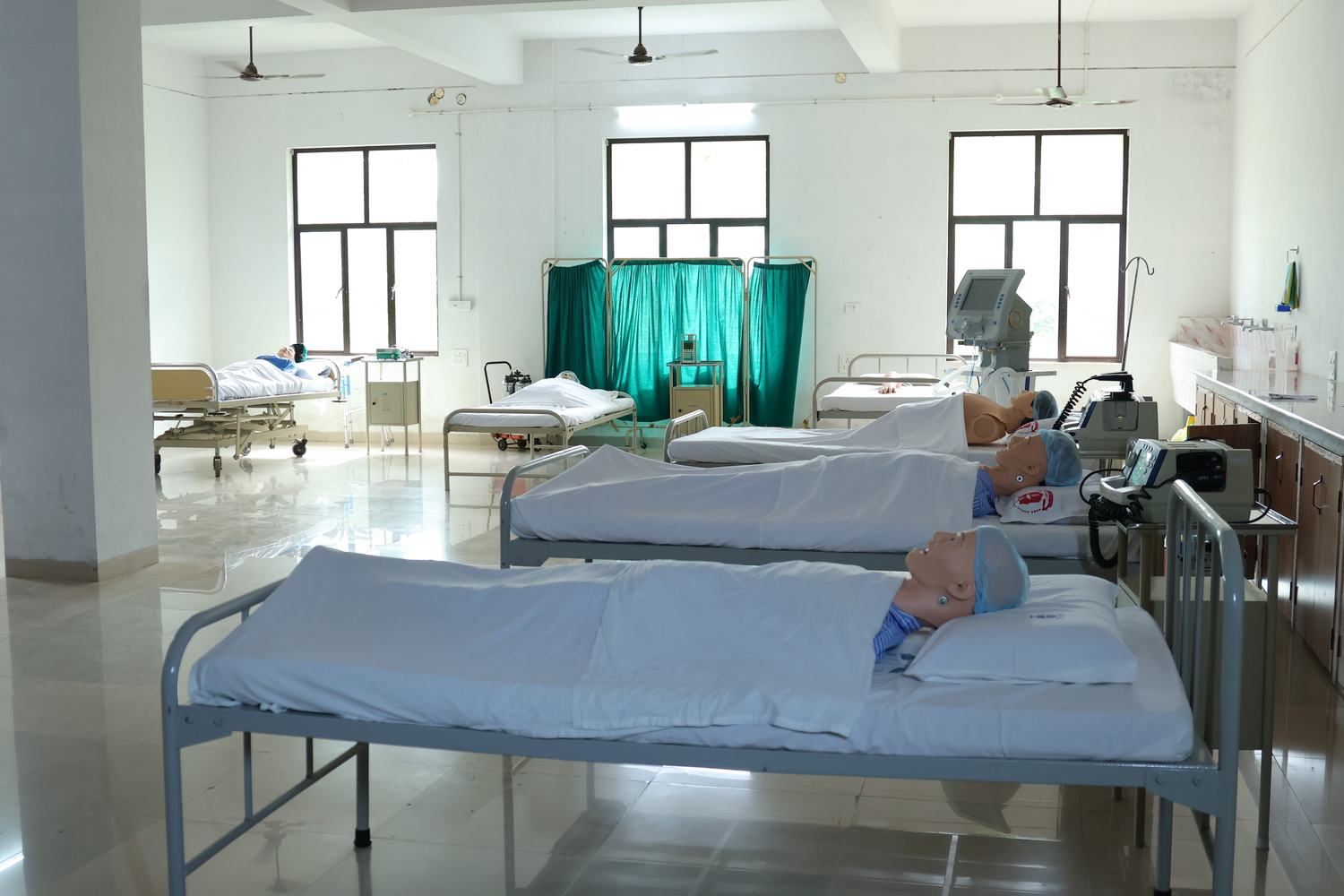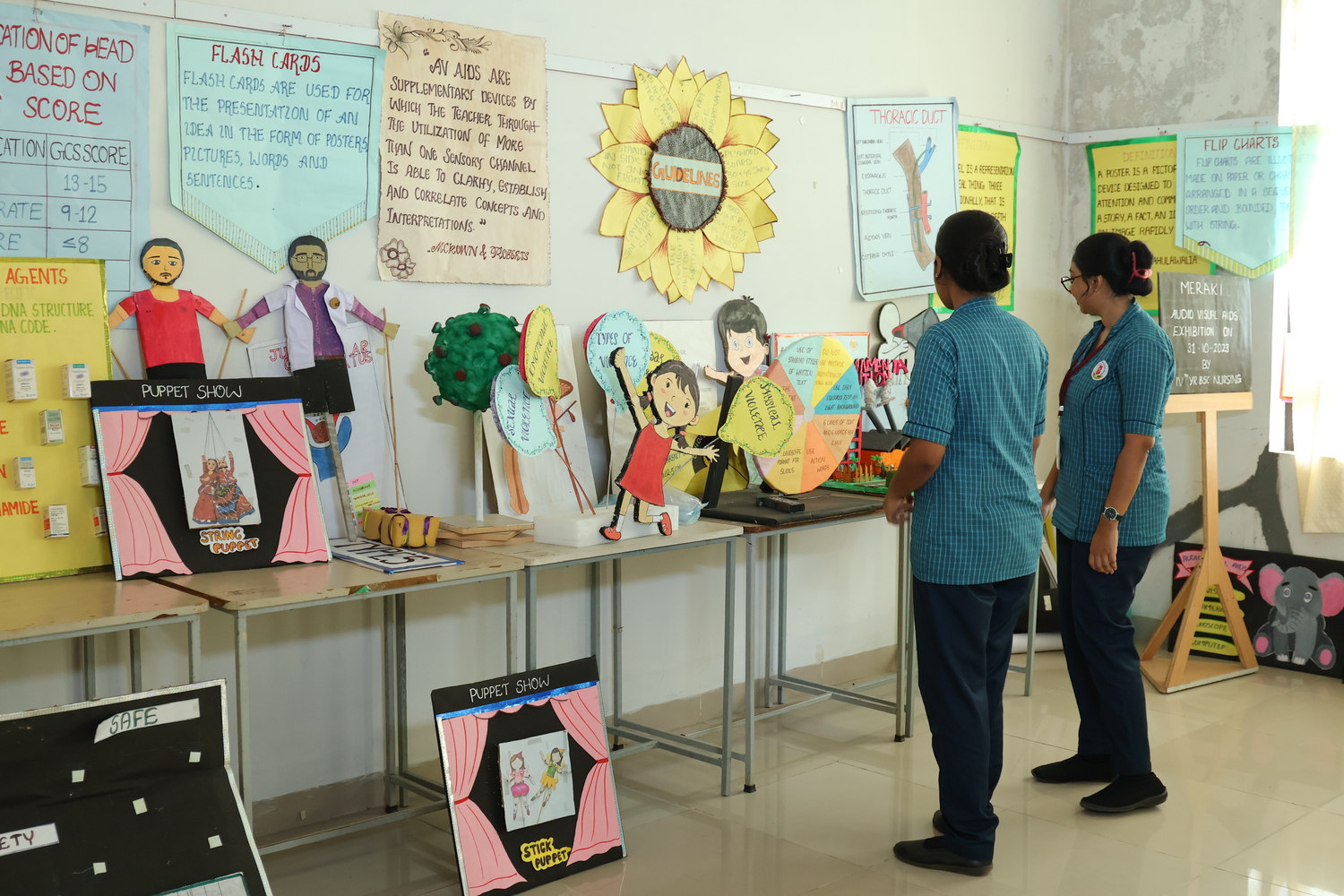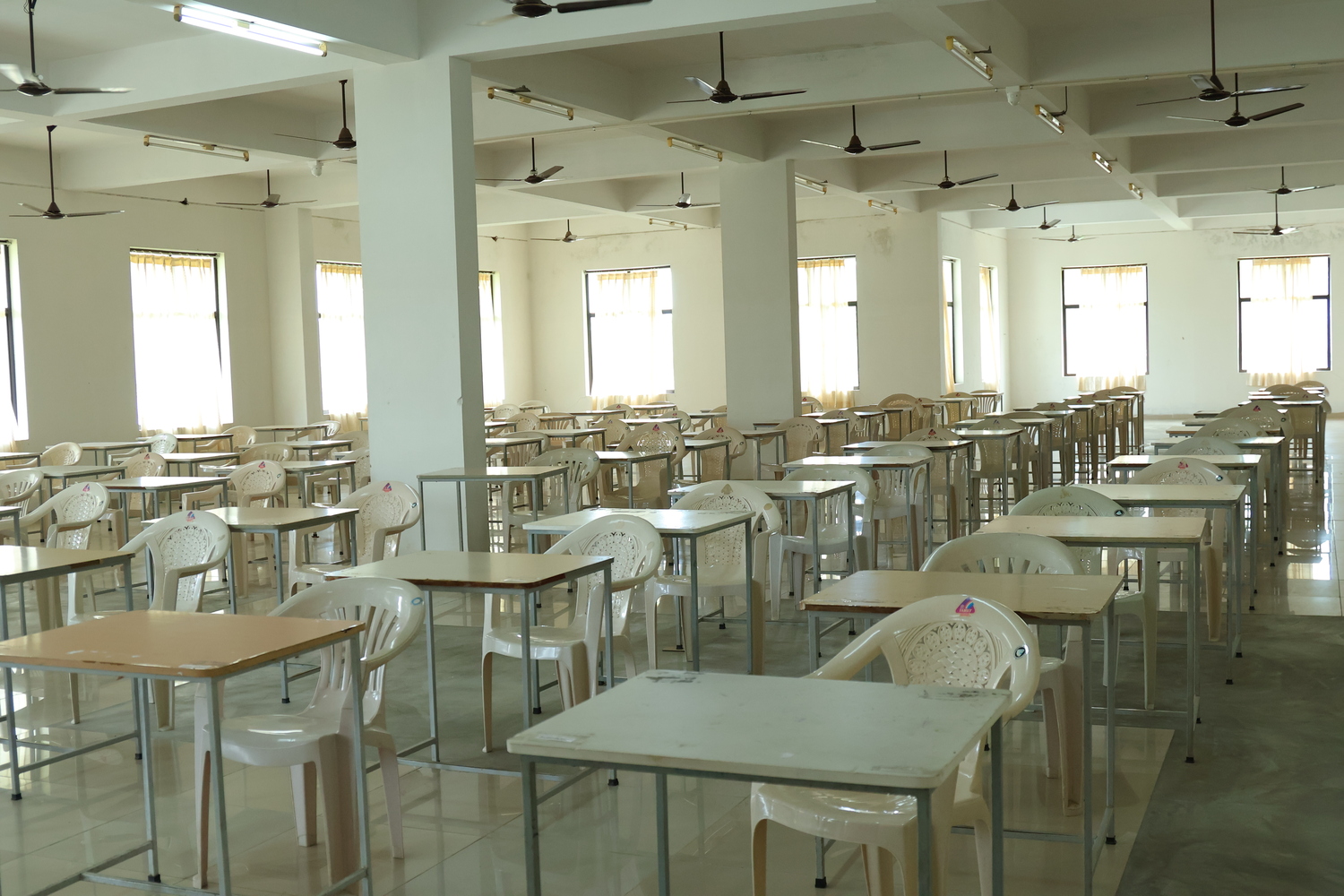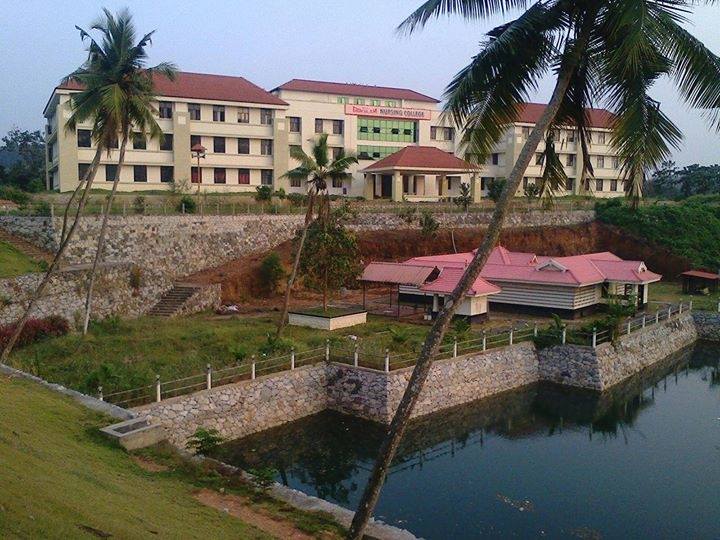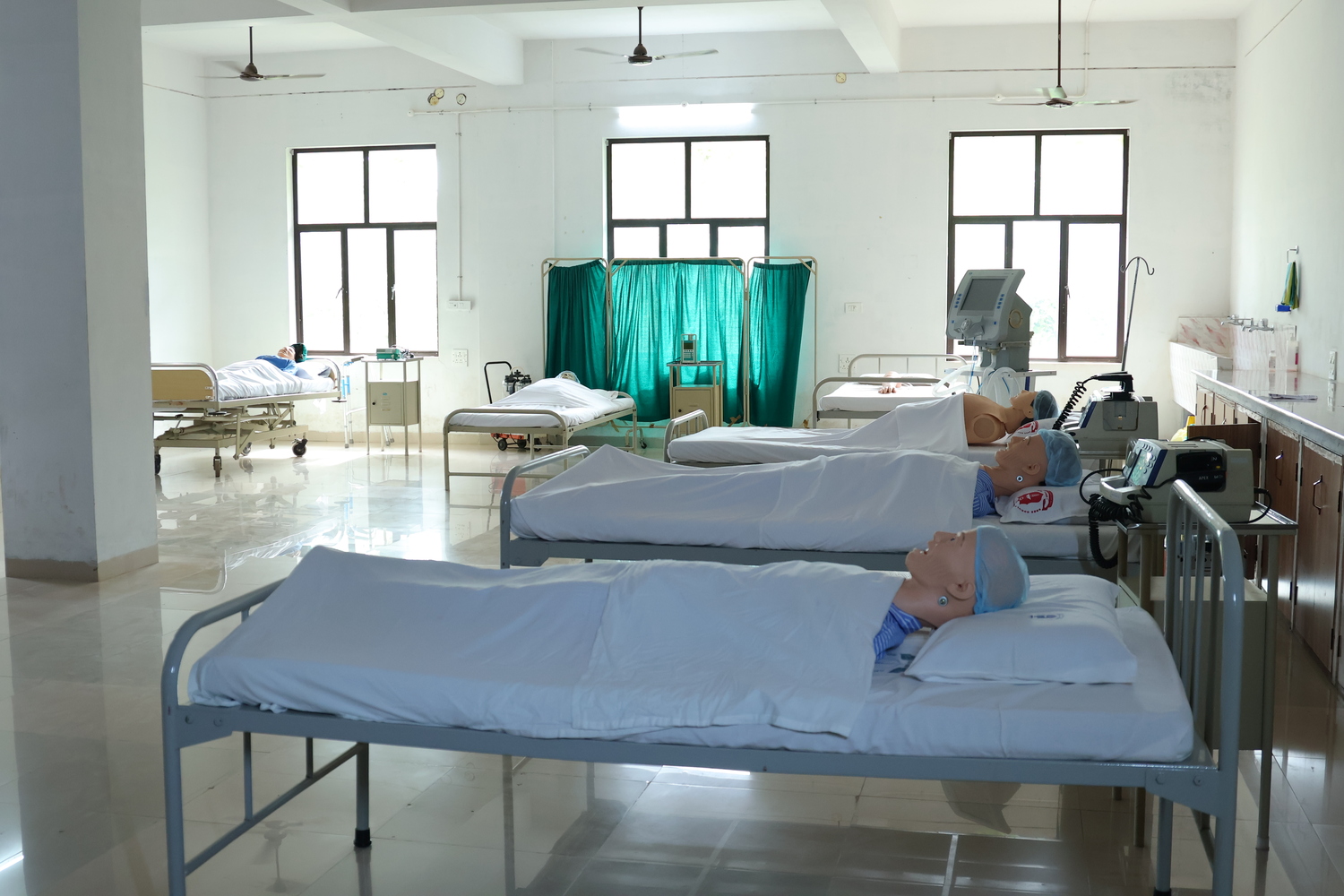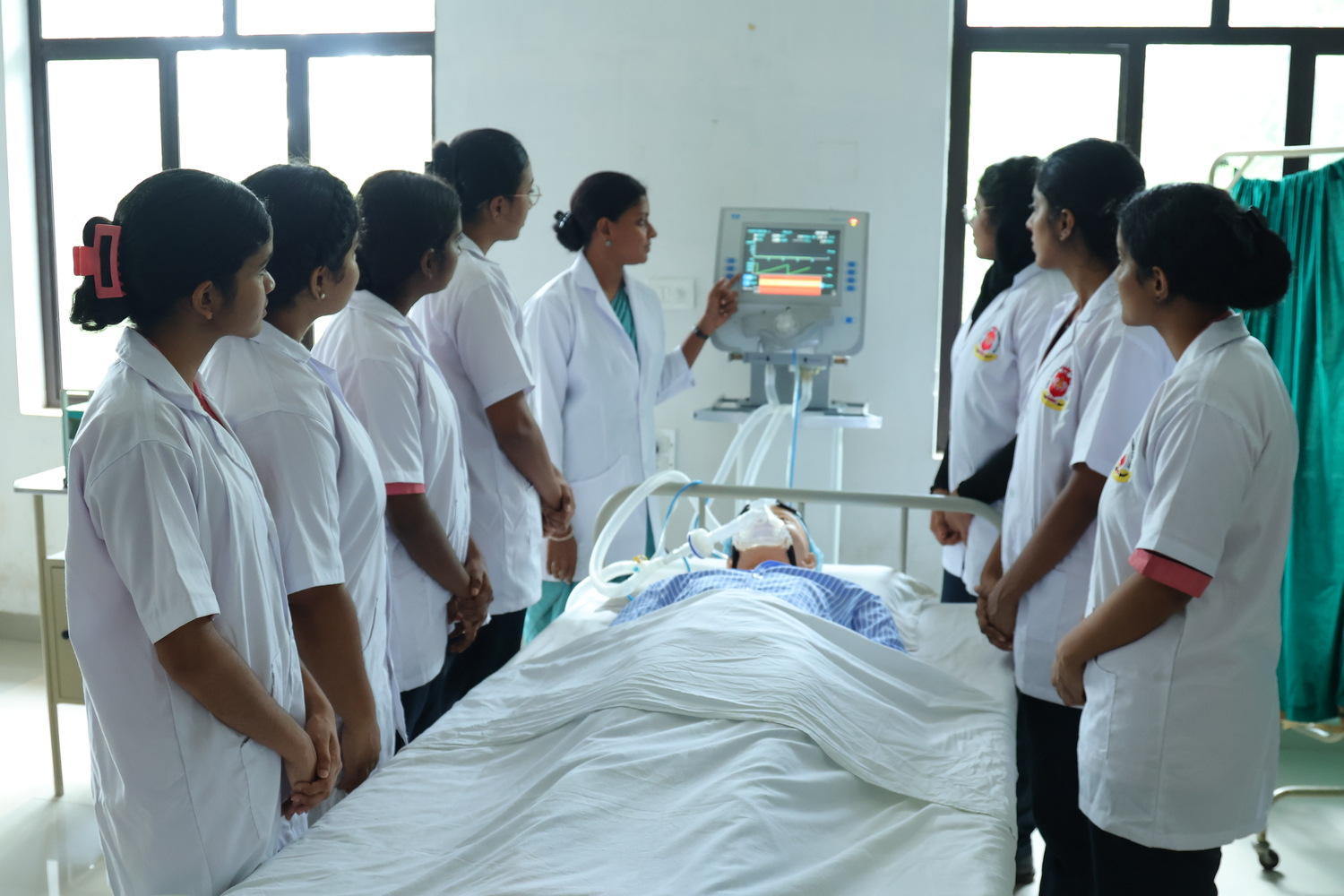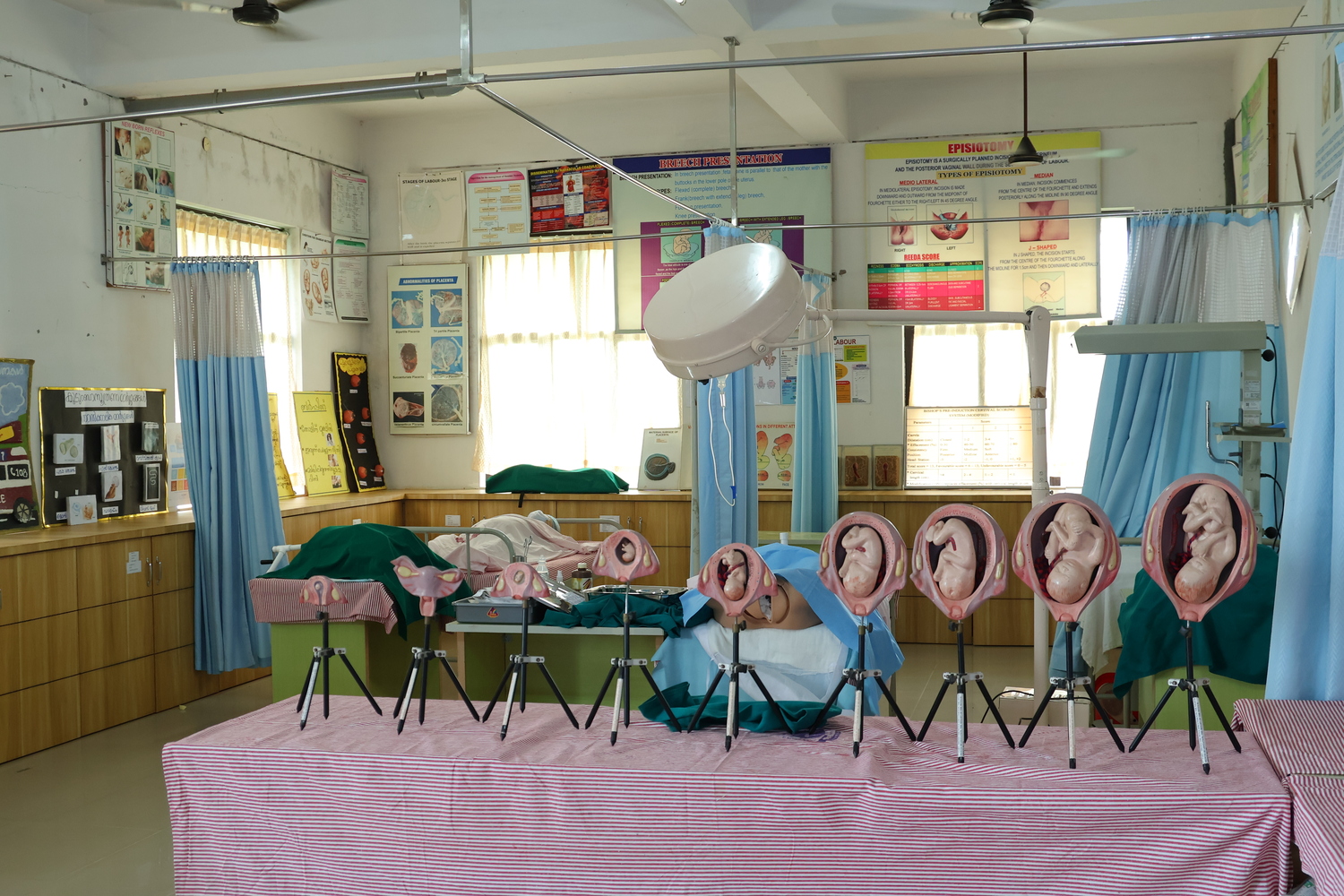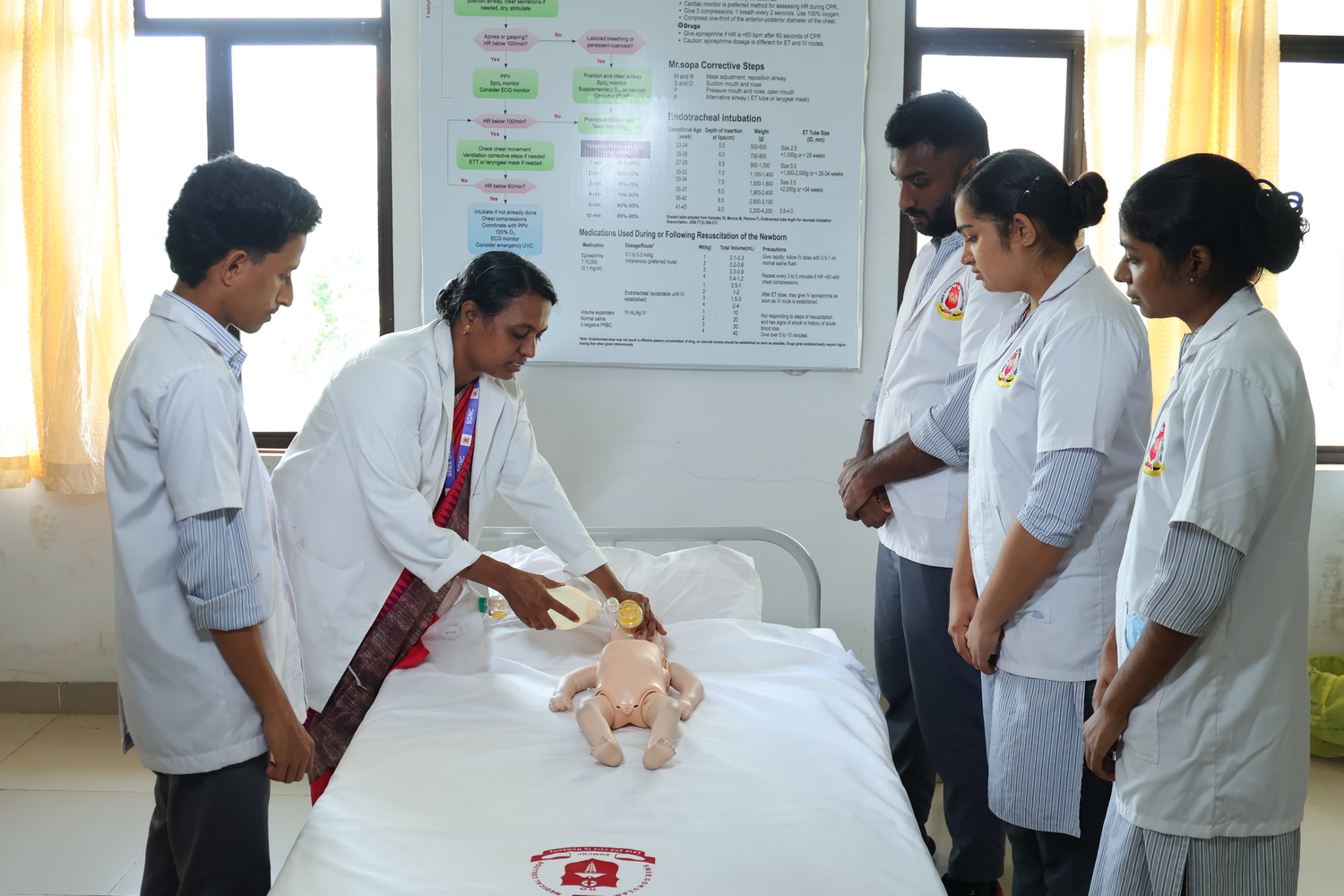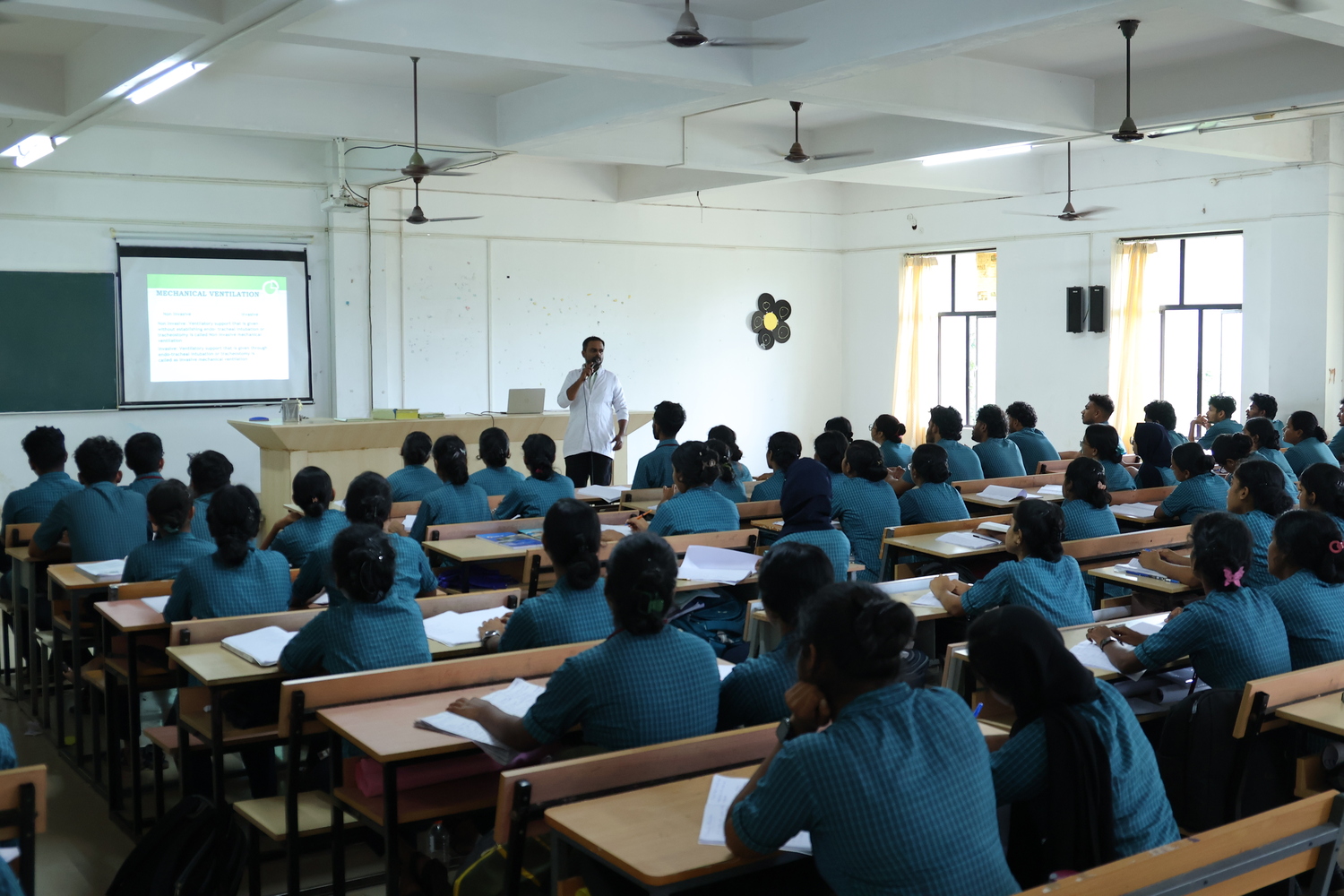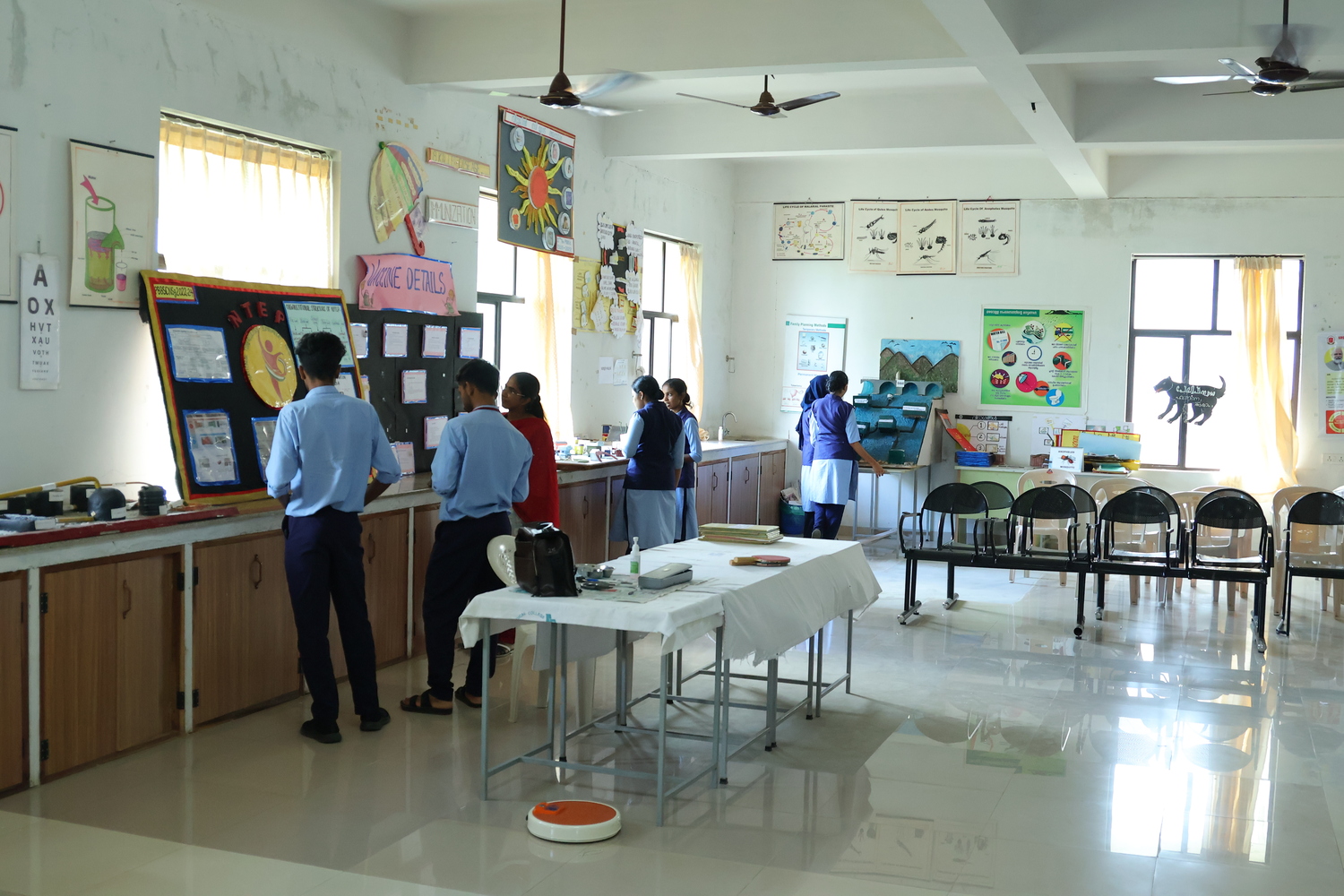
COMMUNITY HEALTH NURSING LAB
The Community Health Nursing Laboratory: Cultivating Care Beyond Hospital Walls At Sree Gokulam Nursing College, our commitment extends beyond acute care settings to encompass the holistic health of communities. Our dedicated Community Health Nursing Laboratory (often referred to as the Public Health Nursing Lab or Home Health Lab) is integral to this vision. It offers a practical and interactive environment where students develop the essential skills and understanding required to provide comprehensive healthcare services in diverse community settings, promoting wellness and preventing disease at a population level. Purpose of the Laboratory: The Community Health Nursing Laboratory serves as a crucial bridge, connecting theoretical concepts of public health and community-based care with real-world application. It provides a simulated environment where students can: Practice fundamental and specialized nursing procedures adapted for home care and community health interventions. Develop critical thinking and problem-solving skills tailored to public health challenges, epidemiological concepts, and health education needs. Enhance their therapeutic communication and cultural competence when interacting with individuals, families, and groups within various community contexts. Gain confidence and competence in conducting health assessments, planning community programs, and providing health teaching in non-clinical settings. Prepare for the unique dynamics and interdisciplinary collaboration inherent in community health nursing roles. Key Features and Facilities: Our well-equipped Community Health Nursing Laboratory is designed to simulate various community health scenarios, fostering practical learning for diverse public health challenges: Home Visit Simulation Areas: Furnished spaces replicating typical home environments, allowing students to practice home health assessments, medication management in the home, infection control, and patient education in a familiar setting. Community Assessment Tools: Access to and training on tools for conducting community needs assessments, including demographic data analysis, environmental health checklists, and resource mapping. Health Education Resources: A collection of models, charts, pamphlets, and audio-visual aids for demonstrating and teaching health topics relevant to community populations (e.g., nutrition, hygiene, family planning, disease prevention). Basic Diagnostic and Screening Equipment: Equipment for practicing community-level health screenings such as blood pressure measurement, basic vital signs, growth monitoring for children, and first aid response. Family Planning and Maternal & Child Health Models: Models for demonstrating contraceptive methods, infant care practices, and maternal health education techniques pertinent to community settings. Emergency Preparedness Kits: Simulated kits for disaster preparedness, basic life support, and emergency response training in a community context. Audio-Visual Aids: Projectors, whiteboards, and interactive screens to facilitate engaging health education sessions, role-playing, and debriefing discussions after simulated community encounters. Dedicated Practice Zones: Configured spaces to replicate scenarios like a community health center consultation, a school health visit, or a public health awareness campaign. Benefits for Our Students: The Community Health Nursing Laboratory offers invaluable benefits, ensuring our students are exceptionally well-prepared for their fieldwork placements and future careers in public and community health: Context-Specific Skill Mastery: Repeated, guided practice of nursing interventions adapted for diverse community and home settings builds practical competence. Safe Learning Environment: Students can experiment with communication strategies and public health interventions in a controlled setting, without real-world risks. Enhanced Confidence: Hands-on experience with community health tools and scenarios significantly reduces anxiety and increases self-assurance when working in unfamiliar environments. Theory-Practice Integration: Direct application of public health theories, epidemiological principles, and health promotion strategies deepens understanding and cultivates a population-focused mindset. Interpersonal and Cultural Competence: Opportunities to practice client-centered communication, empathy, and culturally sensitive care with simulated individuals and families from various backgrounds. Preparation for Diverse Roles: Exposure to a wide range of simulated community health situations prepares students for roles in public health departments, schools, industries, and home health agencies. At Sree Gokulam Nursing College, our Community Health Nursing Laboratory is an empowering learning hub where students develop the specialized knowledge, practical skills, and compassionate approach essential for providing exemplary health services that reach beyond the hospital, nurturing the well-being of entire communities. We are dedicated to continuously enhancing our lab facilities to offer the finest preparation for this deeply rewarding and impactful area of nursing.

